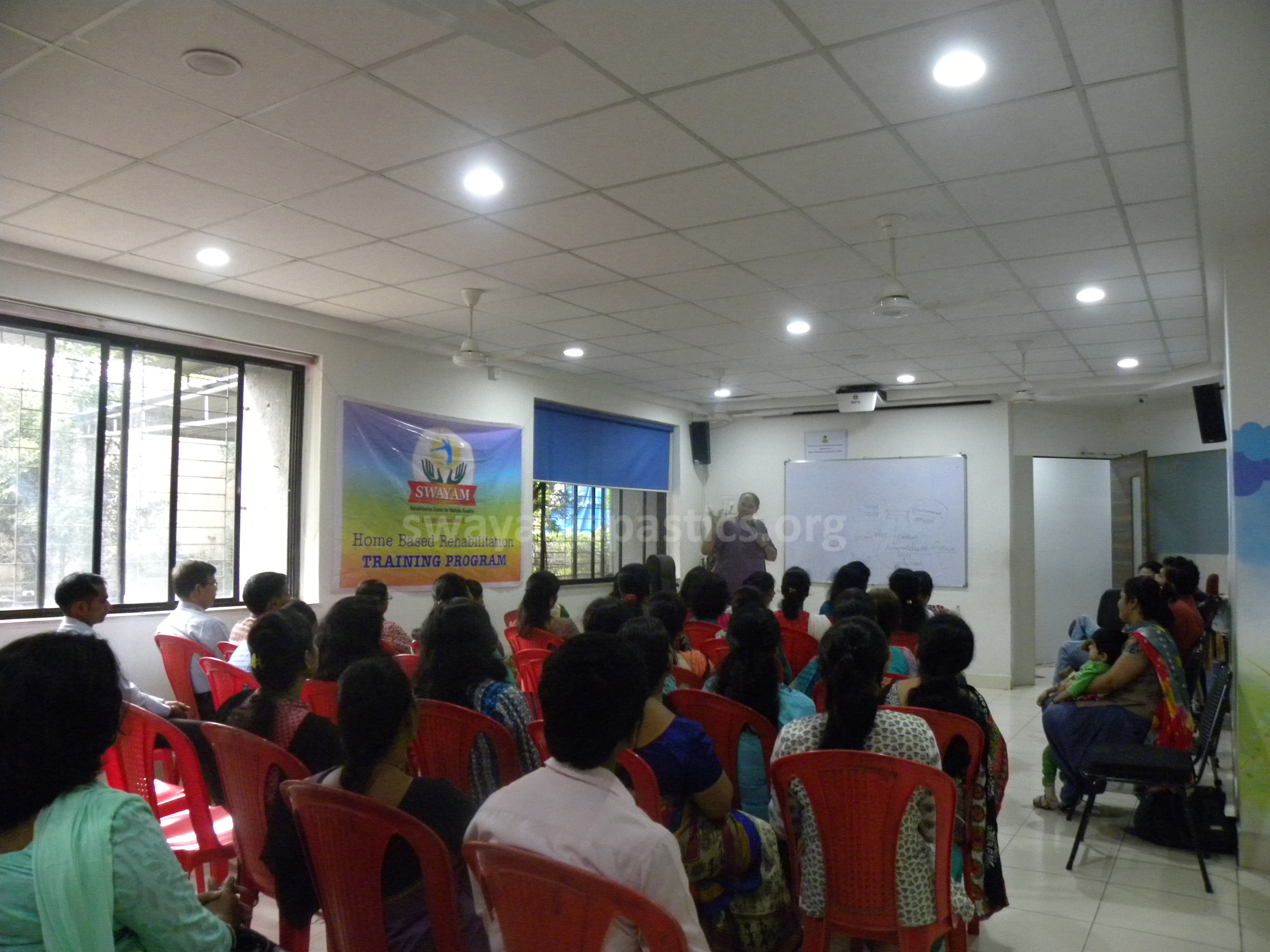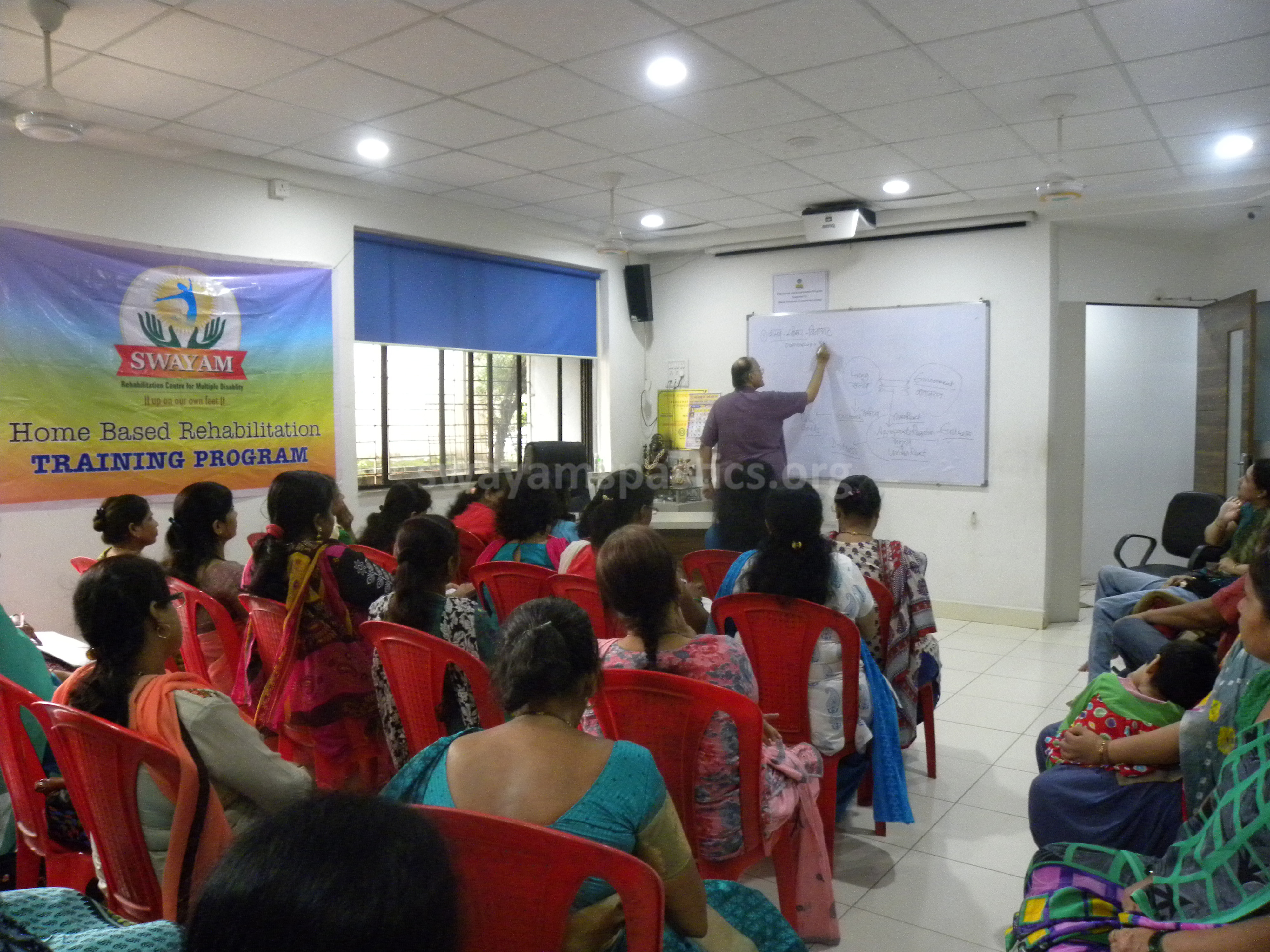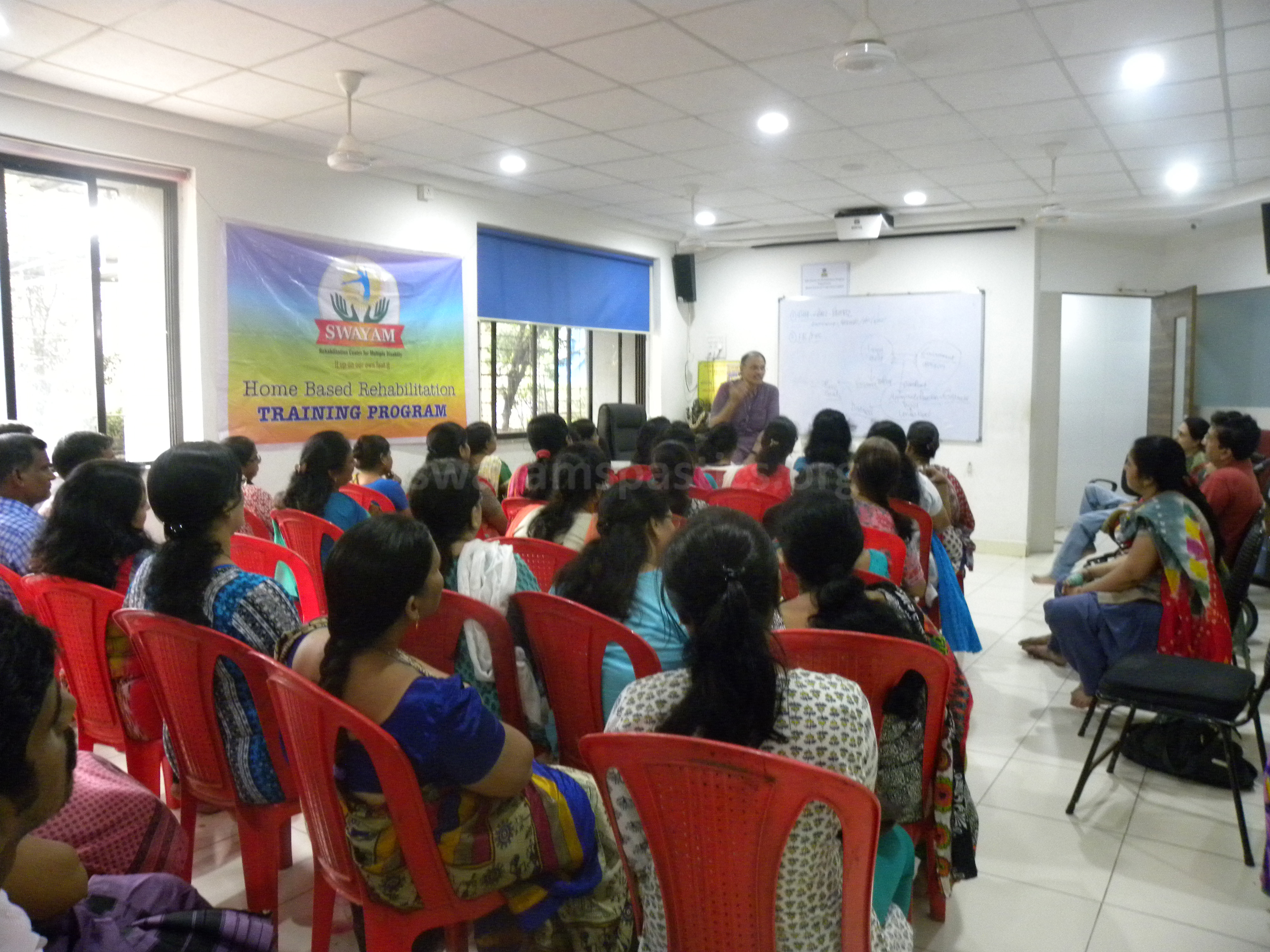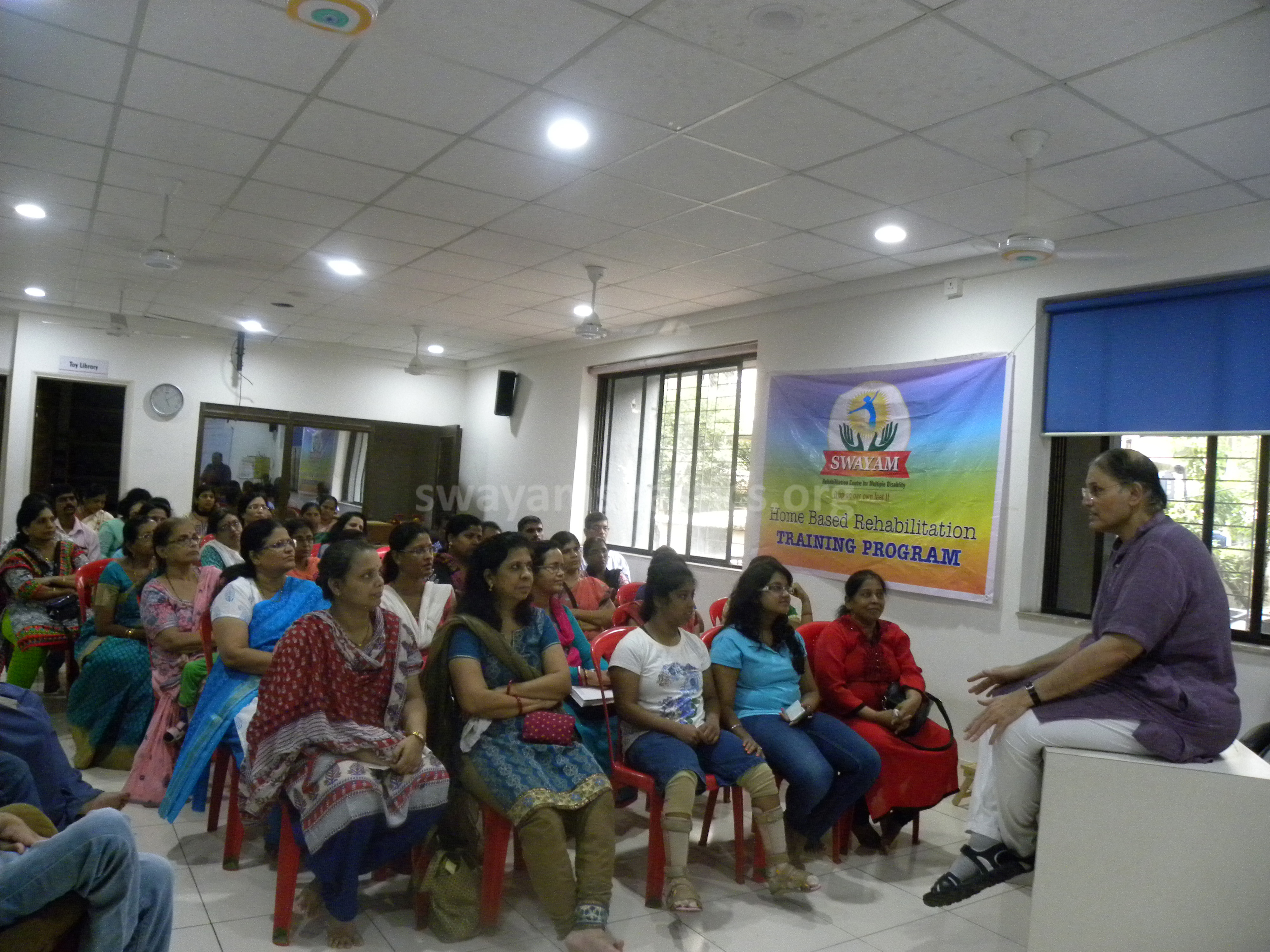

The following training program was conducted to create awareness regarding how stress develops and how good stress could be used for our benefit.
Renowned psychiatrist and Founder of Institute for psychological health, Thane, Dr. Anand Nadkarni conducted session at Swayam, for parents of special kids. It was very informative. Since he is also Trustee at Swayam and part of Founders team, he had exact idea about the kind of issues parents of special children face and provided valuable insights into the matter. Parents really appreciated his inputs.


He conducted the session in all 3 Language's— Marathi, Hindi and English and stroke good rapport with the audience.
Doctor started with explaining any living organism (not only humans) and its interaction with the environment. He mentioned that every living being needs to interact with the environment and thus Stress is produced. Each living being has life force and strives for existence. While handling stress, if the organism produces Appropriate reaction, it becomes Eustress and helps the individual grow.


But as human beings, we cannot produce appropriate reaction all the time, and we do mistakes, tension builds up and Distress is produced. Everyone needs to make conscious effort to regulate Distress and come back to Eustress position.
One major factor for distress is not accepting the situation and crying over destiny or others. Sometimes we accept the situation but still give excuses or put conditions on to it. If distress is to be reduced, unconditional acceptance of the situation is important. This is the first step to do reality check and accept what has come in front of us. Then only other process will start.

As part of the process, we need to check which parameters can be managed by us and which are outside our control. How other people behave, or health situation of the child are Factors Beyond Our Control (fbc) and we should try to manipulate them by applying ’faith tactics’ because it is waste of energy. Instead, we need to evaluate what we can do e.g., take child for therapy, control our responses and work on Factors Within Control (fwc).
Always there are consequences to each action and there are alternatives. We need to evaluate these thoughtfully and check which alternatives are possible. This will help to overcome the challenging situation.
Whenever there is stressful situation in front of us, common human tendency is to blame someone e.g., that Dr. Nadkarni did not give proper treatment or blame self. Both are detrimental and does not help us. We need to conserve our energy and think of alternatives to solve the problem. Therefore, first step is to segregate Problem from Blame and identify what is causing the issue.
Dr. Nadkarni also mentioned a very important point that child's health condition is not a Disease — Cerebral Palsy, Down's syndrome etc. are conditions, not illnesses. So, parents need to refer to child's condition and not look upon it as disease.
Often there is a tendency to point finger at person and praise/criticize the person. We need to remember that the person by himself is not good or bad. Instead of labelling the person, we need to evaluate the behavior. Also, not all people can do all the things, there are limitations because each one is unique. Any person is beyond all the labels and his self-worth is always there, even if he cannot do certain things.
Often there is huge focus on the result e.g., comparison of child with other children or comparing that since these many months we enrolled him, but no visible change is seen. These are detrimental to special child because there are no fixed developmental milestones for special kids. Parents need to enjoy each small achievement of the child and look for joy in the eyes of the children instead of evaluating success in their own terms or comparison.
Dr. Nadkarni answered queries from parents patiently and summarized the session by mentioning that each special child is a “Child” first. They are developing in their own ways and needs to be given due respect. Also, if there are average siblings in family, they need to be given their proper time. Parents need to practice patience and not to pay attention to those eyes trying to pity them or their children.
Parents mentioned that they get great support at Swayam, and this is a family where they find ways to cope up with their stress.
There was announcement from Swayam about starting a Counseling Center for Parents in distress with help of IPH Counselors.